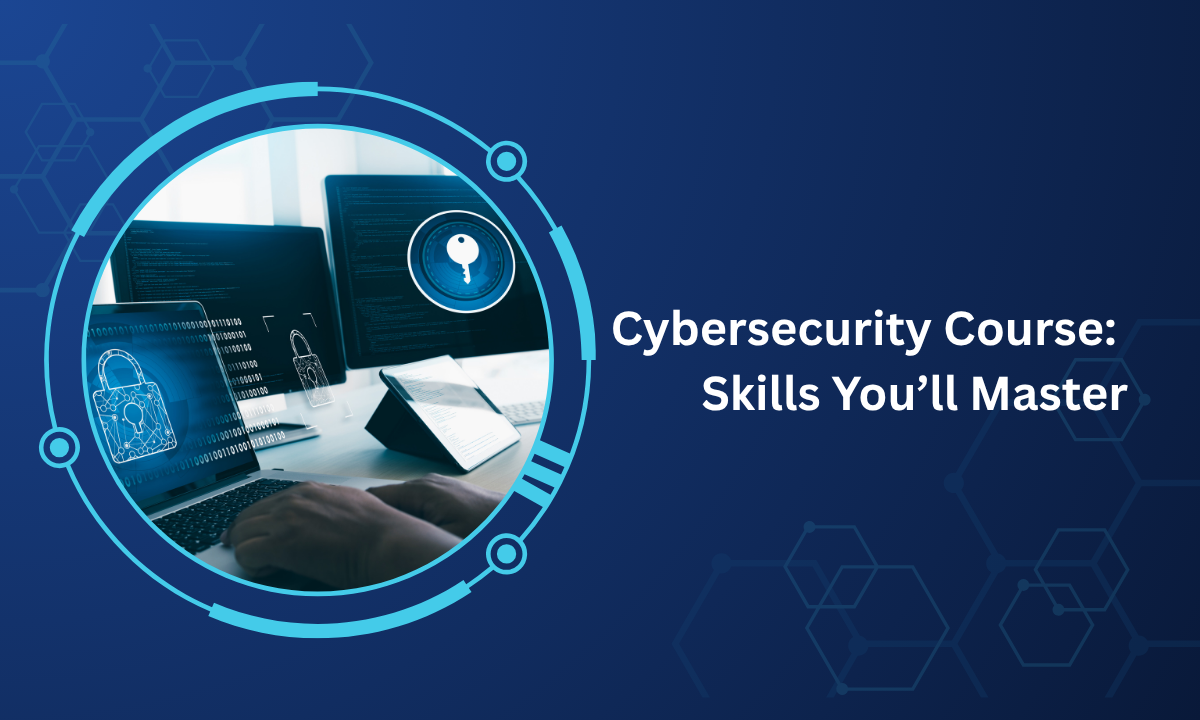Table of contents:
|
1. Understanding the Cybersecurity Landscape |
|
2. Networking & Network Security |
|
3. Operating Systems & System Administration |
|
4. Coding & Scripting Fundamentals |
|
5. Penetration Testing & Security Controls |
|
6. Incident Response & Risk Management |
|
7. Adaptability & Continuous Learning |
|
8. Learning at a Leading Training Institute in Bangalore |
|
9. Wrapping Up |
|
10. FAQs |
At Apponix, I have seen how enrolling in a cybersecurity course transforms not just technical abilities but an entire mindset. If you’re aiming to build a solid career in cyber defense or enhance your organization’s resilience, this is the right path.
Throughout this article, I will explain the core cybersecurity skills you will gain, ranging from incident response, networking, risk management, coding, operating system fundamentals, penetration testing, security controls, and adaptability to network security.
And if you’re searching for a training institute in Bangalore, our Cyber Security course in Bangalore delivers hands-on, industry-aligned learning that turns theory into practical expertise.
Understanding the Cybersecurity Landscape
Before diving into individual skill sets, a cybersecurity course builds your understanding of the broader threat landscape—emerging attack vectors, regulatory frameworks, and how digital systems are exploited.
This perspective connects each technical skill to its real-world purpose: securing assets, defending networks, and reducing risk across industries.
Networking & Network Security
A strong foundation in networking and network security is one of the first things you’ll learn. You’ll understand how data travels across networks, how communication protocols operate, and where vulnerabilities often lie.
You’ll also learn to deploy firewalls, intrusion detection systems, and VPNs—key components of modern security controls. This knowledge ensures you can protect, monitor, and respond to threats across complex IT infrastructures.
Operating Systems & System Administration
Understanding the operating system is vital because that’s where most attacks happen.
In our Cyber Security course in Bangalore, you’ll gain hands-on experience with Windows, Linux, and Mac environments.
You’ll learn how each system handles processes, permissions, and logs, and how attackers exploit these functions. Knowing how to secure and harden operating systems gives you an advantage whether you’re defending enterprise servers or conducting penetration testing.
Coding & Scripting Fundamentals
To truly excel, a cybersecurity professional needs a basic grasp of coding and scripting. You’ll explore programming languages like Python, SQL, Bash, or C/C++—not to become a software developer, but to understand how systems and exploits work. With coding knowledge, you can automate tasks, identify vulnerabilities, and build custom security scripts to enhance your organization’s security controls.
Penetration Testing & Security Controls
One of the most exciting and practical parts of a cybersecurity course is learning penetration testing, the art of ethical hacking. You’ll simulate real-world attacks to identify system weaknesses before malicious hackers do.
Alongside this, you’ll study security controls, such as encryption, access management, and endpoint protection, which help prevent, detect, and respond to attacks effectively. This dual skill—testing and securing—is at the core of modern cybersecurity defense.
Incident Response & Risk Management
No defense is perfect, so learning incident response is critical. You’ll master how to detect, contain, and mitigate cyberattacks. This includes forensic analysis, log interpretation, and coordination across teams during a security incident.
A related skill you’ll gain is risk management, the ability to identify threats, evaluate their potential impact, and apply preventive measures using frameworks like NIST or ISO 27001.
Together, incident response and risk management form the backbone of every cybersecurity operation.
Adaptability & Continuous Learning
In cybersecurity, yesterday’s solution may not solve tomorrow’s problem. That’s why adaptability is one of the most crucial cybersecurity skills you’ll develop. The field evolves constantly, with new threats, tools, and frameworks appearing daily. Through continuous upskilling, practice, and exposure to real scenarios, you’ll learn how to adjust, react, and lead effectively in this dynamic environment.
Learning at a Leading Training Institute in Bangalore
At Apponix, our Cyber Security course in Bangalore integrates all these essential skills—networking, operating systems, coding, penetration testing, risk management, incident response, and network security—into a cohesive, project-based curriculum. We don’t just teach tools; we build problem-solvers.
Our learners work on live simulations, incident reports, and vulnerability assessments to ensure they’re job-ready from day one. Being located in Bangalore—India’s tech capital—means you’re learning right where the cybersecurity jobs are.
Wrapping Up
From my experience at Apponix Training Institute in Bangalore, a cybersecurity course is far more than a classroom experience; it’s a transformation. You begin to think like a defender, understand how attackers operate, and apply the right security controls to safeguard digital assets.
By mastering networking, operating system concepts, coding, penetration testing, incident response, and risk management, you build the complete skill set needed in the cybersecurity industry.
Most importantly, you cultivate adaptability, the mindset that drives lifelong learning and professional growth.
In today’s data-driven world, cybersecurity experts are in constant demand. Whether you’re entering the field or upskilling for new roles, enrolling in a ccybersecuritycourse in Bangalore at Apponix opens doors to global opportunities and gives you the tools to protect, detect, and respond in an ever-evolving digital landscape.
FAQs
Q1: What is a cybersecurity course?
It’s a structured program that teaches you cybersecurity skills—including threat analysis, networking, incident response, risk management, and security controls—to safeguard networks and systems.
Q2: Do I need coding knowledge for cybersecurity?
Yes, learning coding helps automate security tasks, detect vulnerabilities, and write scripts for penetration testing or analysis.
Q3: Is incident response included in the course?
Absolutely. Our Cyber Security course in Bangalore includes detailed training in incident response, where you’ll learn how to detect, analyze, and recover from security breaches.
Q4: Why is risk management important in cybersecurity?
Risk management helps you identify threats before they become incidents and ensures preventive actions are prioritized based on business impact.
Q5: How does adaptability help in cybersecurity?
Adaptability allows you to keep pace with evolving technologies and threats, making you a flexible and effective defender in the cybersecurity domain.




